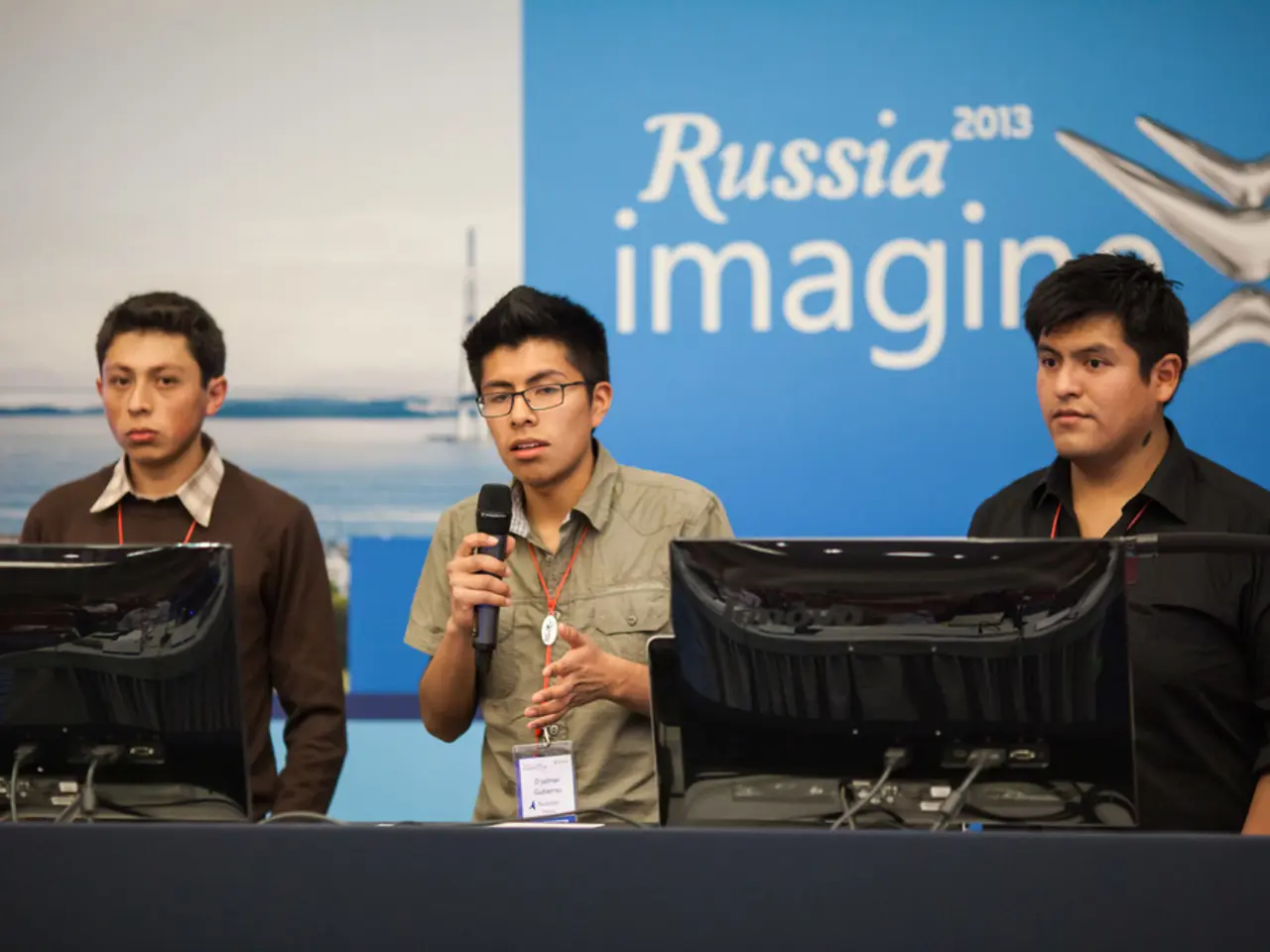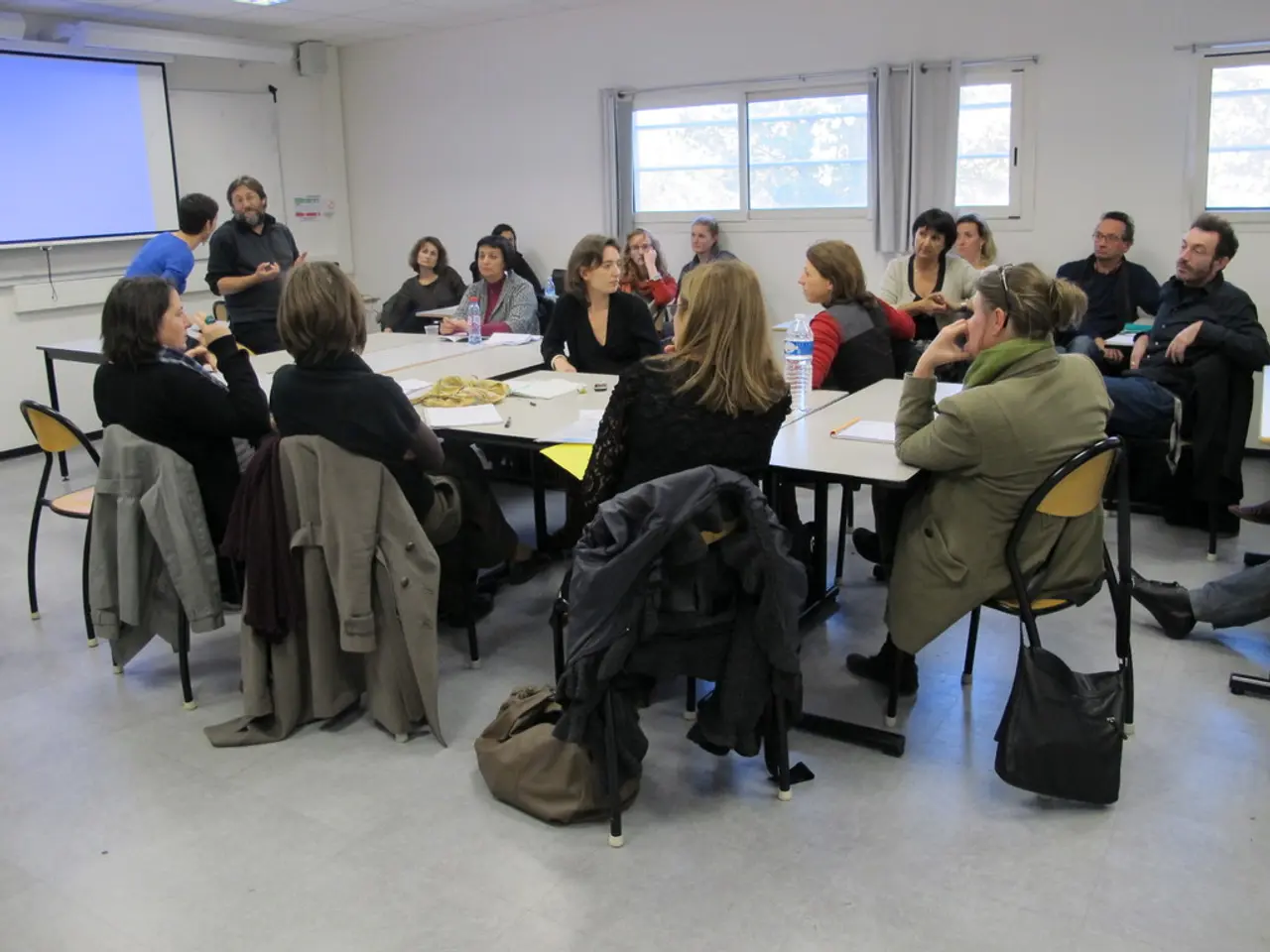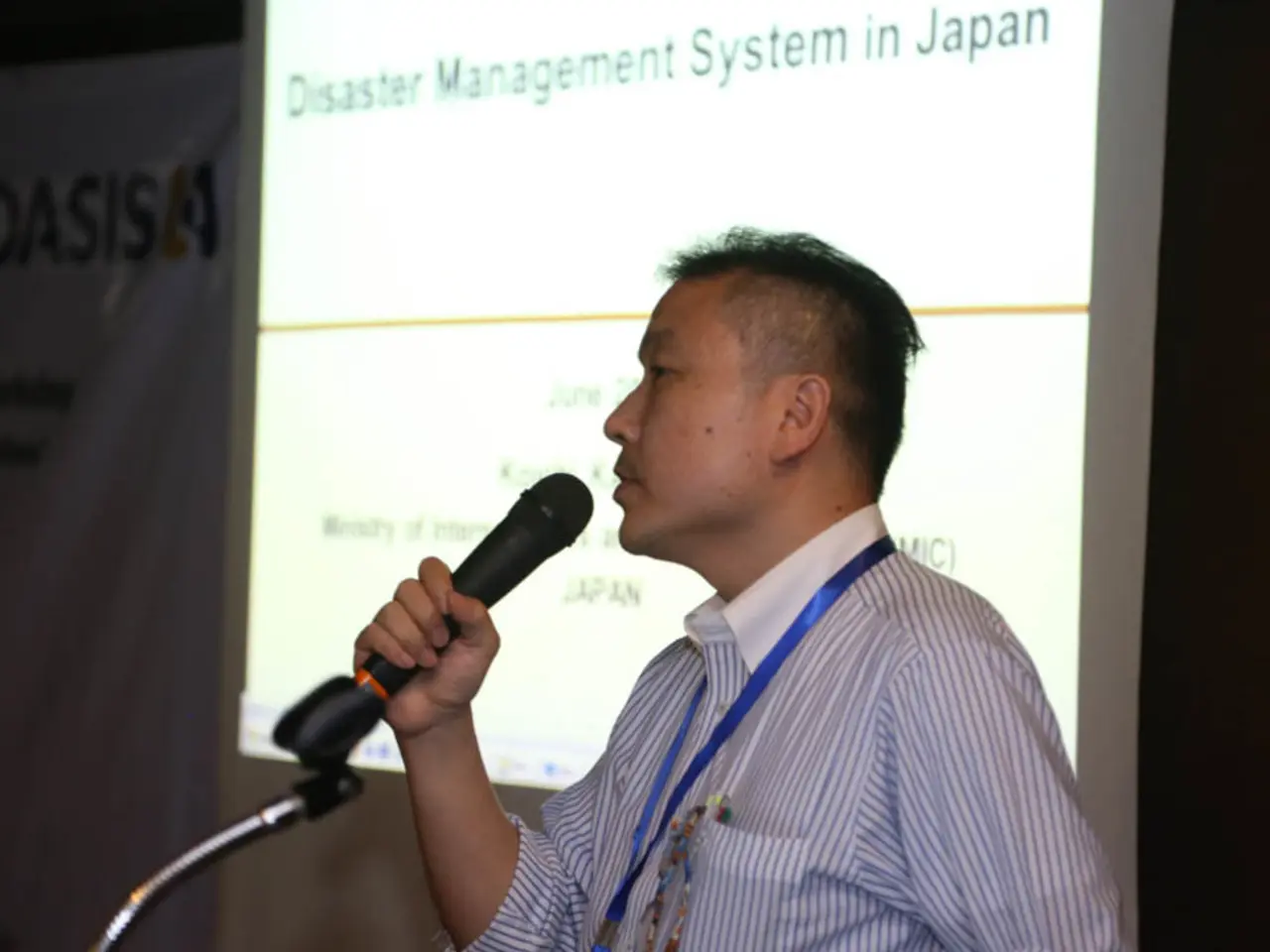Following G7: "Cautious Optimism" on Tougher US Sanctions Against Russia
- *
US-Russia Tensions Eased After G7: Hopes Rise on Pausing Additional American Penalties - Warning Issued by Merz to G7: "Moderated Caution" Regarding Additional U.S. Sanctions Toward Russia
German Chancellor Friedrich Merz expressed a sense of cautious optimism regarding the possibility of the United States imposing additional sanctions on Russia. He noted that there is a "solid agreement" among G7 nations, including the US, to support Ukraine militarily and explore all options for imposing sanctions on Russia.
The European Union has already agreed on another sanctions package, and they are hoping that increased US sanctions will further strengthen these measures. However, as of now, US President Donald Trump has not shown his support for the sanctions package currently in the US Senate.
Chancellor Merz emphasized the importance of applying pressure on Russia to bring them to the negotiation table. He voiced this concern to President Trump during the G7 summit, stressing the importance of US participation in any sanctions enforced against Russia.
Ukrainian President Volodymyr Selenskyj attended the G7 summit in Kananaskis after a significant attack on Kyiv by Russia. Selenskyj called the attack a "grave tragedy" and highlighted the need for increased pressure on Russia to initiate meaningful peace talks.
The discussions between the leaders mainly centered around finding strategies to force Russia to the negotiation table as soon as possible.
Despite early concerns about President Trump's potential reluctance to align with the joint positions of the G7 nations, the summit was deemed a success with all nations reaching a consensus on the issues at hand. The mood throughout the discussions was described as "collegial" and "open," with little confrontation or controversy.
- Russia
- Friedrich Merz
- Ukraine
- Kremlin
- Donald Trump
- USA
- EU
- Kananaskis
- Germany
- CDU
- G7 summit
- US Senate
- US President
Insights:
- The Sanctioning Russia Act of 2025 in the US Senate, also known as SRA2025, has gathered strong bipartisan support with over 80 cosponsors in the Senate. The bill targets Russia and countries supporting its war efforts through energy purchases with severe sanctions, including a 500% tariff on imported goods. The Senate aims to move forward with the bill imminently due to stalled peace talks with Ukraine.
- The Senate is prepared to act decisively if Russia’s ceasefire proposal is deemed insincere or insufficient. The bill restricts presidential waiver authority, indicating legislative resolve to impose sanctions if conditions are met. However, President Trump's explicit current stance on the bill following the G7 summit is not clear.
The European Union has been actively engaged in discussions regarding the potential sanctions on Russia, aiming to strengthen the existing measures with increased US sanctions. This alliance in policy-and-legislation, including the Sanctioning Russia Act of 2025 in the US Senate, signifies a collective effort in the politics surrounding the war-and-conflicts in Ukraine. Furthermore, the negotiation dynamics between Russia, Ukraine, and countries like Germany, the United States, and the European Union are likely to escalate, given the need for meaningful peace talks to combat the continuing general-news issues.





